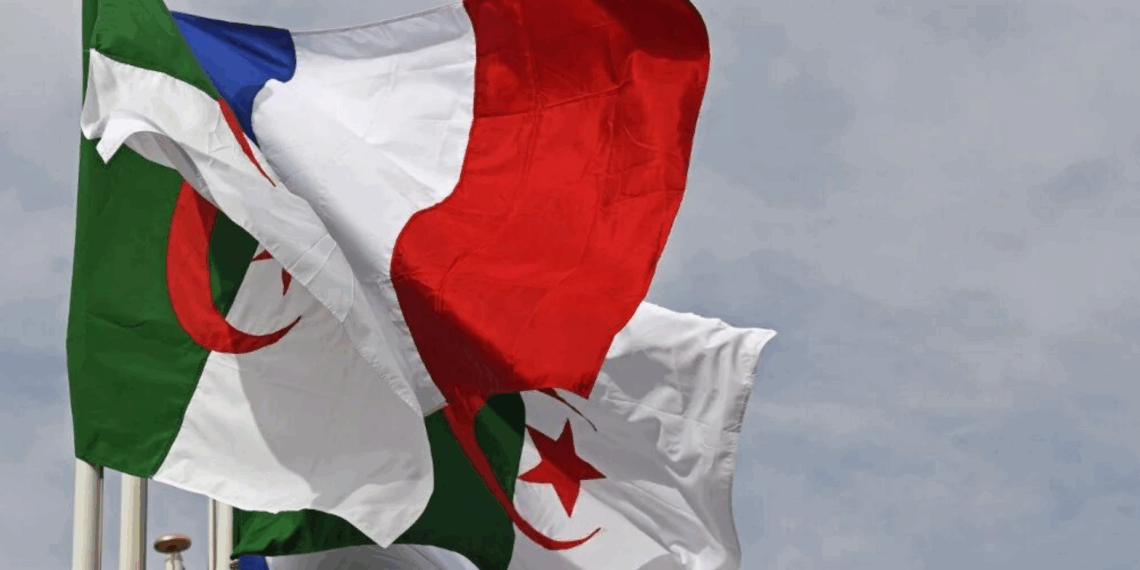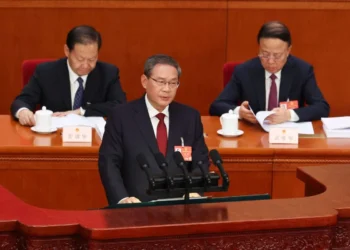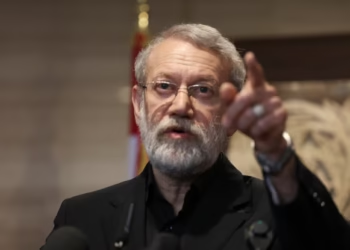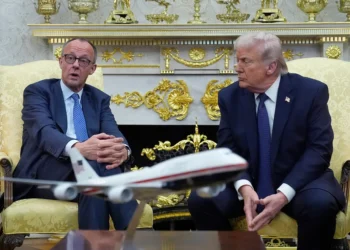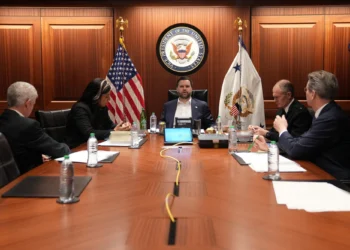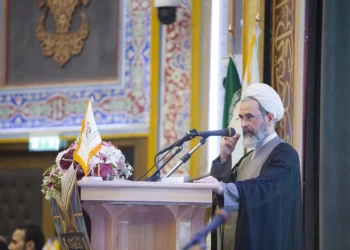ALGIERS (Realist English). France is no longer in a position to dictate the terms of its relationship with Algeria, according to a new analysis by Dalia Ghanem, senior fellow at the European Union Institute for Security Studies. In an article for Middle East Eye published May 25, Ghanem argues that power has shifted, and it is now Algiers — not Paris — that increasingly sets the agenda.
“The two countries are locked once again in their ritual dance of diplomatic escalation,” Ghanem writes, referring to the recent expulsion of French diplomats from Algiers following the arrest of an Algerian consular employee in Paris. But unlike previous standoffs, she says, France stands to lose more if tensions escalate into prolonged confrontation.
For the first time since Algeria’s independence in 1962, the key question — “Who needs whom more?” — may no longer favor Paris.
Economic recalibration: Gas leverage and shifting alliances
Algeria’s rising energy clout is at the heart of this shift. In 2023, Algerian exports to France totaled $7.2 billion, primarily driven by oil and gas. Algeria now supplies 8% of France’s gas imports, a dependency that would be costly for Paris to replace, especially given higher prices from alternate suppliers like Qatar or the United States.
Meanwhile, French exports to Algeria have been declining, reaching $4.6 billion in 2023, with a steady 5.4% drop per year over the past five years. While roughly 450 French companies still operate in Algeria — including major players like Total, Sanofi, Société Générale, and BNP Paribas — their market share is shrinking. By contrast, Turkey now has more than 1,400 firms active in Algeria.
“Historical closeness no longer guarantees economic leadership,” Ghanem notes. Algeria is actively deepening ties with new partners, including Italy, China, Germany, Turkey, Qatar, and Saudi Arabia. Its April 2022 deal with Italy’s Eni positioned Algeria as Rome’s top gas supplier, covering 39% of Italian gas imports and launching broader cooperation in renewables and the Southern Hydrogen Corridor (SoutH2Corridor).
Gas power and economic diversification
In 2023, Algeria set a national gas production record and became the fastest-growing LNG exporter among Arab countries. As of 2024, it ranks fourth among the EU’s gas suppliers, with a market share nearing 15% — a dynamic that boosts Algeria’s bargaining power and dilutes its dependence on France.
According to the World Bank, Algeria’s non-hydrocarbon exports have tripled since 2017, reaching $5.1 billion in 2023. Algiers is pursuing a strategy focused on diversification, investment attraction, and development of non-extractive industries.
France stands to lose more
France maintains a larger and more diversified economy, but Ghanem warns that French small and medium enterprises (SMEs) — nearly 6,000 of which are active in Algeria — would be hit hardest by a diplomatic rupture. Customs delays, contract cancellations, and eroding trust among Algerian partners are already undermining business stability.
“Paris may be able to endure the loss of the Algerian market,” Ghanem writes, “but rebuilding alternative partnerships will take time, resources, and strategic rethinking. In the short term, France would feel the pain.”
Strategic stakes: Security and migration
Beyond economics, Algeria plays a crucial role in regional security. Following the failure of Operation Barkhane and the French military withdrawal from Mali, France’s influence in the Sahel has eroded. In contrast, Algeria has emerged as a vital intelligence provider and logistical hub.
Paris cannot afford to sever ties with Algerian security services, Ghanem stresses — a reality underscored by the quiet visit of French intelligence chief Nicolas Lerner to Algiers earlier this year.
Migration is another critical front. France depends on Algeria to manage irregular migration, deportations, and border flows. A breakdown in coordination could trigger domestic political crises in France.
The diaspora dilemma
With over 650,000 Algerian citizens and an estimated 1.2 million descendants living in France, diplomatic tensions also put the Algerian-French community at risk. Agreements governing their status — including the 1968 migration accord — could be jeopardized.
“In times of crisis, the diaspora becomes the first scapegoat,” Ghanem warns. Rising anti-immigrant rhetoric and populist politics turn Algerians in France into pawns in a larger diplomatic chess game.
Diplomatic fatigue and structural decline
Ghanem also highlights the weakening of French diplomacy: over the past 30 years, the size of the French diplomatic corps has shrunk by half. At the same time, policy inconsistencies between the Élysée and interior ministries are undermining strategic coherence.
“Algeria will continue to diversify its partnerships,” she concludes. “If France wants to preserve its relevance, it must rethink its approach. Reflexive reactions no longer suffice. A sustainable dialogue is now a strategic imperative.”
France is facing a new Algeria — sovereign, economically diversified, and strategically vital. The era of unilateral leverage is over. Paris is losing its grip — politically and economically — while Algiers builds a new architecture of regional influence. For a Europe reliant on southern gas routes and Maghreb stability, this is a wake-up call: the relationship with Algeria needs not reform, but a complete reconfiguration.


